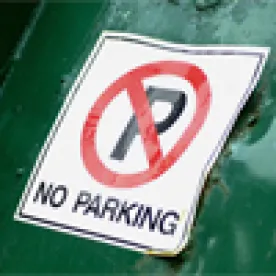In December 2018, the IRS released two notices (IRS Notice 2018-99 and IRS Notice 2018-100) (the "Notices") addressing the inclusion by tax-exempt entities in unrelated business taxable income (UBTI) of the value of parking offered to employees through a parking reimbursement program.
Section 512(a)(7) of the Internal Revenue Code (IRC), which was effective as of January 1, 2018, requires that a tax-exempt entity’s UBTI be increased by any amounts under a qualified transportation fringe (QTF) program for which a deduction would be disallowed under IRC Section 274 if the employer were a taxable entity, and the amounts are paid or incurred by the tax-exempt entity for, among other things, any parking facility used in connection with a QTF program.
IRC Section 274(a)(4), in turn, provides that no deduction is allowed for the expense of any QTF provided to an employee (which the IRS has interpreted to include parking reimbursement plans). The result is that tax-exempt entities generally must recognize UBTI on the value of any parking facility used in connection with a qualified parking plan. Therefore, by offering a qualified parking plan to its employees, a tax-exempt entity may be required to recognize UBTI that is subject to a 21% tax on amounts that are attributable to the program.
IRS Notice 2018-99 – Determining The Value of Parking Benefits
IRS Notice 2018-99 provides guidance regarding methods for determining the amount treated as an increase of UBTI from a parking facility. The calculation methods vary depending on whether the employer pays a third party to provide parking for its employees or it owns or leases the parking facility where its employee's park.
Where an employer pays a third party to allow its employees to park at that party's parking lot or garage, the amount is generally calculated as the employer’s total annual cost of employee parking paid to the third party. However, if the amount the employer pays to a third party for an employee's parking exceeds the §132(f)(2) monthly limitation on exclusion, which for 2019 is $265 per employee, that excess amount is excepted from inclusion in UBTI.
Where the employer owns or leases the parking facility, a “reasonable methodology” standard will generally apply until the IRS issues further guidance. The Notice sets forth a four-step calculation method that, if followed by a tax-exempt entity, will be deemed to be reasonable:
- Step 1. Calculate the disallowance for reserved employee spots
- Step 2. Determine the primary use of remaining spots
- Step 3. Calculate the allowance for reserved nonemployee spots
- Step 4. Determine the remaining use and allocable expenses
Tax-exempt entities who need assistance with calculating their potential UBTI can contact a member of our practice group listed below.
IRS Notice 2018-100 – Relief for Failure to File Estimated Income Taxes
IRS Notice 2018-100 provides that the addition to a tax-exempt’s taxes for failure to make estimated income tax payments otherwise required to be made on or before Dec. 17, 2018, is waived for certain tax-exempt entities that provide QTFs and for any parking facility used in connection with a qualified parking program. However, this relief is available only to a tax-exempt entity hat was not required to file a Form 990-T (Exempt Organization Business Income Tax Return) for the tax year immediately preceding the entity’s first tax year ending after Dec. 31, 2017. A qualifying entity must timely file a Form 990-T and timely pay the amount reported for the tax year for which relief is granted. To claim the waiver under Notice 2018- 100, the entity must write "Notice 2018-100" on the top of its Form 990-T. Taxpayers who do not qualify for the relief may avoid the additional tax for underpayment of estimated income tax if they meet one of the statutory safe harbor or exception provisions under the Internal Revenue Code.
Tax-exempt entities looking to take advantage of this relief should consult with their tax advisors and a member or our practice group listed below to determine whether they satisfy the requirements
**Please note: This article applies only to Tax-Exempt Employers






 />i
/>i

